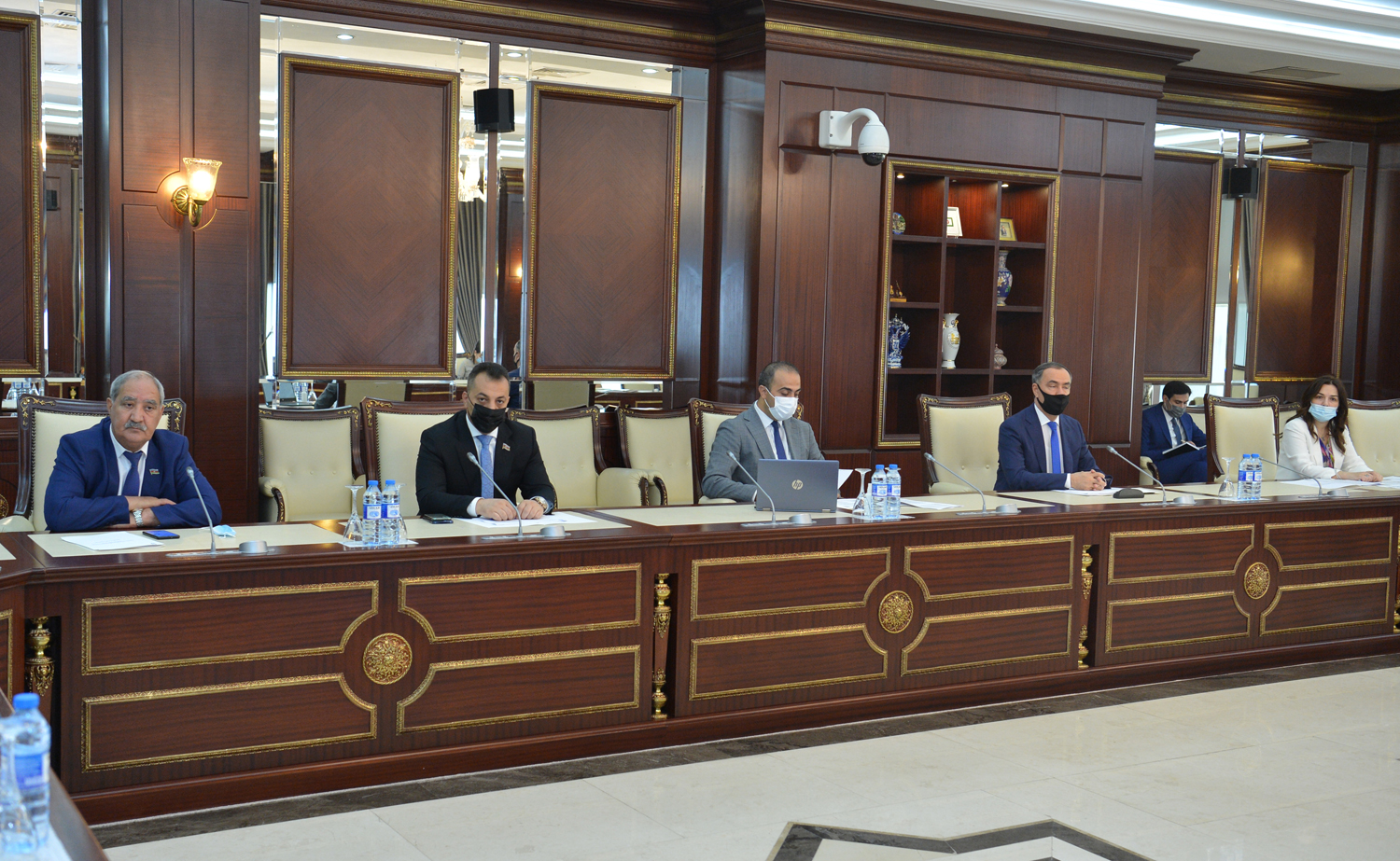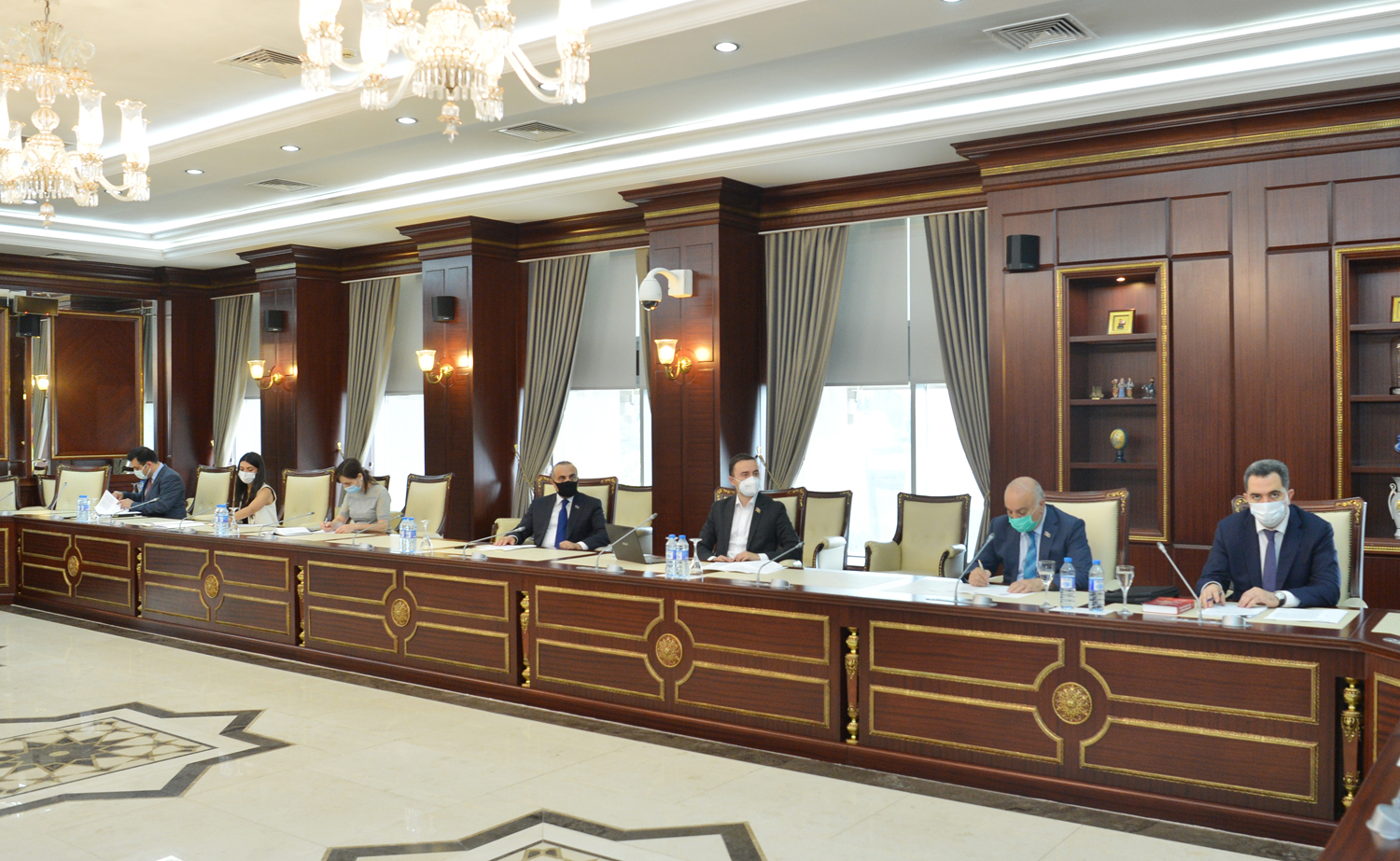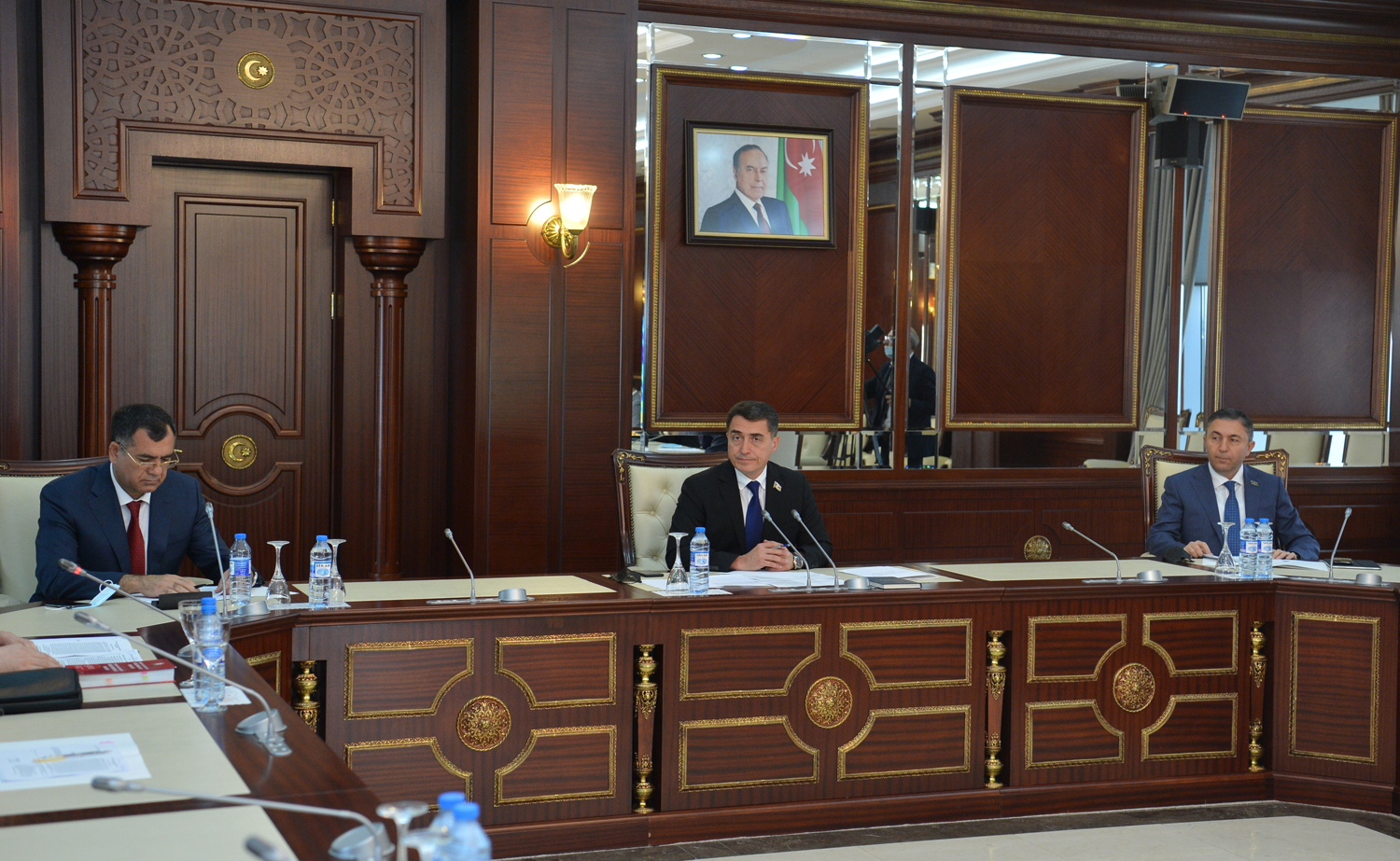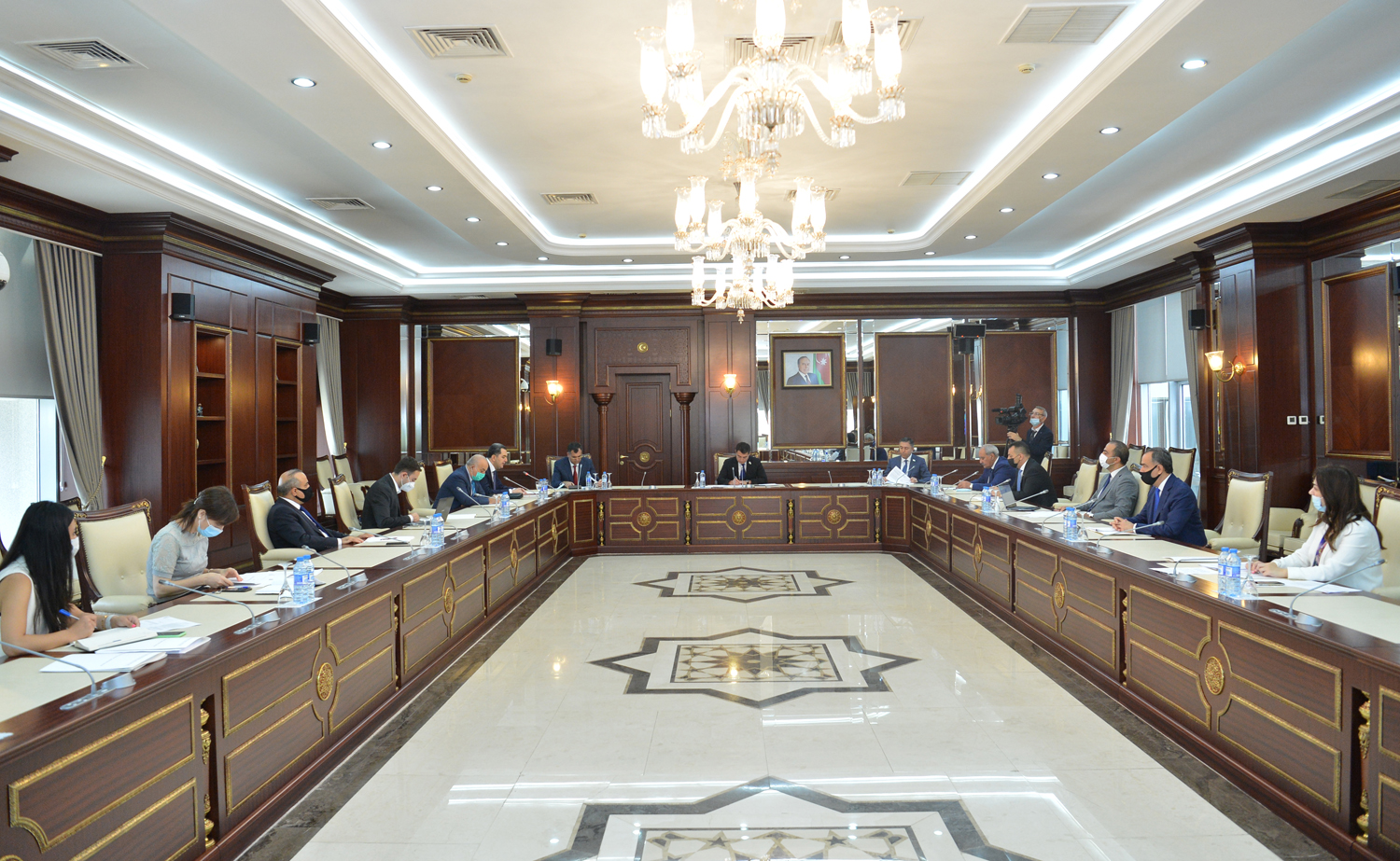At the Meeting of the Law Policy and State-Building Committee
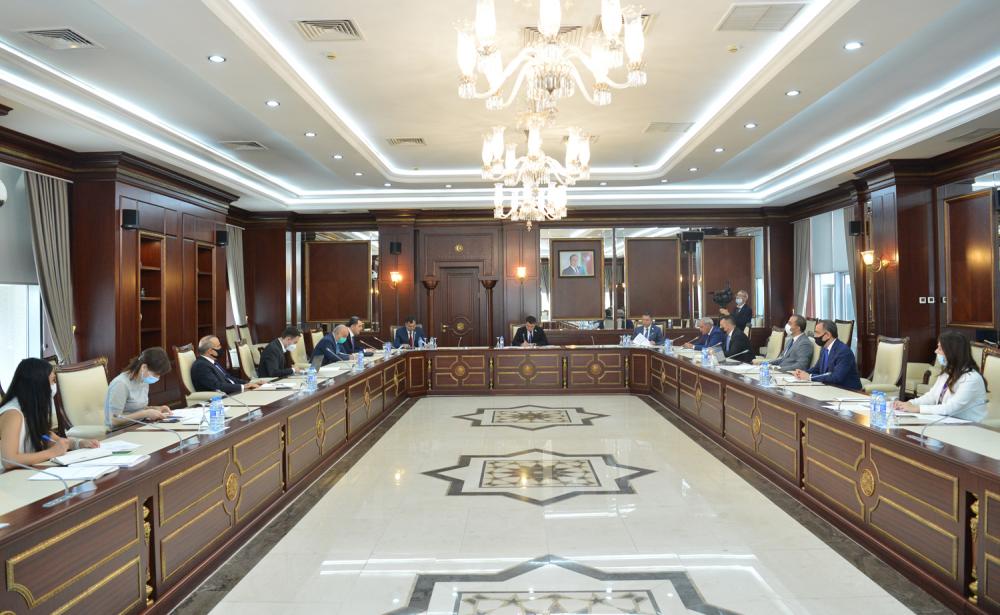
The Milli Majlis Committee for Law Policy and State-Building had a meeting on 24 June.
First Deputy Chair of the Milli Majlis and the Committee Chairman Ali Huseynli set at the outset that the agenda contained four Bills having submitted to the parliament in one parcel and due for consideration in the first reading. All the four had been drafted as part of the arrangements to execute Mr President’s decree ‘On Deepening the Reforms in the Judicial and Legal System’ signed off on 3 April 2019. Amongst them are two Bills containing amendments to the Civil Procedural and Administrative Procedural Codes of the Azerbaijan Republic and others to the State Duty Law.
The amendments at issue are composed in connexion with the reforms continuing in the national judicial and legal system; they are the output of a working group led by Sanan Hajiyev, Chairman of the Civic Collegium of the Supreme Court. Mr Hajiyev himself was going to inform those present of the drafts therefore, Mr Huseynli added.
Mr Hajiyev took the floor then. He told the meeting participants that it was intended to modify up to 160 articles of the civil procedural legislation, with the more material amendments being concerned with the inception of an institution of written proceedings and a digital judicial system, reinforcement of the preliminary (trial preparation) procedural institute, adoption of temporary settlement measures and, finally, the advent of an institution of reversal of execution.
The analytical study that the task force had undertaken had shown that submission of unprepared cases to courts of law was chiefly what caused procrastination in their consideration and handling. This, then, highlights the necessity of having a stronger institute of pre-trial preparation and of presenting body of evidence at preliminary court hearings, with the ultimate goals being that cases should be handled within the time-frames prescribed legally, that the public should be more satisfied with the administration of justice and, at the same time, that respondents should be afforded opportunities to build their defence. One more innovation that is in stock is videoconference proceedings. Besides, it is proposed to raise from AZN 50 to AZN 200 the disciplinary penalty for failure of evidence. Furthermore, where there are ambages based on unfounded appeals, those resorting to such dilatory tactics will be facing a disciplinary penalty of AZN 500. Next, the amendments contemplate making some proceeding terms shorter but, on the other hand, extending others. The cassation appeal limit is to be raised from AZN 2,000 to AZN 5,000 across the judicial system.
The Bills were commended by committee members Gudrat Hasanguliyev, Fazail Agamali, Bahrouz Maharramov, Azay Guliyev, Tahir Karimli and Vugar Iskandarov as the discussion went on. The speakers pointed out that the amendments on hand were adequate to the tasks of streamlining the judicial and legal system and of making citizens more satisfied with its workings.
Chairman of the Economic Policy, Industries and Enterprising Committee Tahir Mirkishili who was present at the meeting explained the economic aspects of the Bills.
It was decided in the end to recommend that all the four agenda items should come before the Milli Majlis at a plenum for consideration in the first reading.
A member of the Law Policy and State-Building Committee Nurlan Hasanov and other officials took part in the meeting as well.
The Press and Public Relations Department
The Milli Majlis



